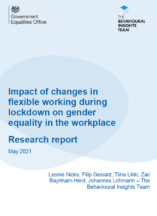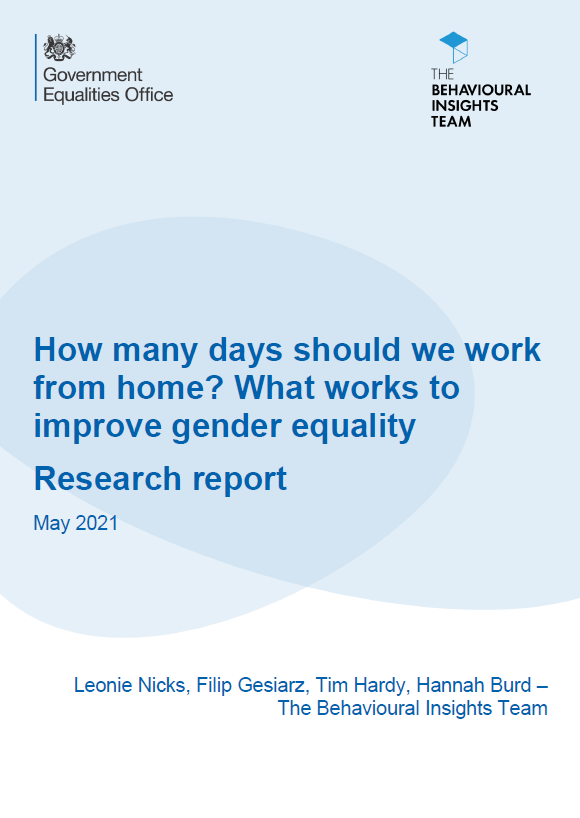Key findings
- Is #flexibleworking a double-edged sword? ⚔️ It can give people with caring responsibilities more control over how they work. But increasing overtime may disproportionately disadvantage working mothers who do 10+ more care hours than working fathers per week. Solution? Businesses should experiment with ways to prevent increases in overtime. Tweet
- Flexible working won’t be enough to improve #genderequality at work. Organisations will need to proactively protect against overtime so that men aren’t inadvertently advantaged. 🖥️ Tweet
We carried out a longitudinal survey with UK employees (n = 4,426) to explore changes in flexible working (remote working and hours), unpaid care work (childcare, adult care and housework), career and wellbeing outcomes, and their relationship with gender equality in the workplace.
The first survey, administered in May 2020, asked questions about both the period before March (‘before lockdown’) and the previous week in May (‘early lockdown’), while the second survey asked about the previous week in October 2020 (‘tiered lockdown’). The sample only included people who were in paid employment during both early and tiered lockdown (and not on furlough) in order to capture experiences of flexible working and make recommendations relevant to organisations.
Remote working was a critical tool for supporting care work during COVID-19 and has become much more normalised. There is considerable appetite for remote working to continue after restrictions are fully lifted, which is equally shared by men and women.
However, at the same time overtime greatly increased and employees felt less control over how much they work and greater pressure to respond to colleagues outside of hours. It is not clear whether remote working will challenge or reinforce long hours working culture.
Organisations should ensure that the benefits of remote working are maintained. According to this research, they could do so by taking a proactive approach to preventing increases in overtime, supporting social connection without reducing employee autonomy, and ensuring that senior leaders role model flexible working to reduce any associated stigma.
The huge increase in remote working brought about by the COVID-19 pandemic demonstrated that previously immovable barriers can crumble overnight. This raises the question: what are the next seemingly impossible barriers to break at work?









